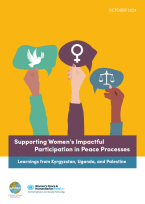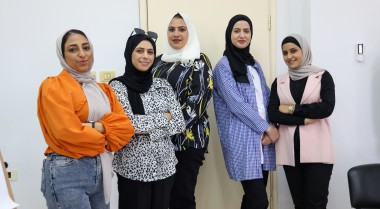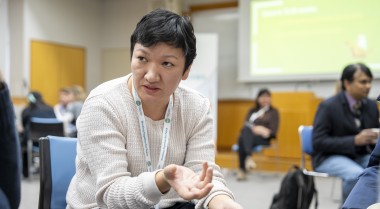
Supporting Women’s Impactful Participation in Peace Processes: Learnings from Kyrgyzstan, Uganda, and Palestine
Women’s participation in peace processes is essential for achieving inclusive and sustainable peace, yet remains significantly low despite global commitments, such as United Nations Security Council (UNSC) Resolution 1325 on Women, Peace, and Security.
To bridge this gap, GPPAC has partnered with the United Nations Women’s Peace and Humanitarian Fund (WPHF) Rapid Response Window to enhance women’s roles and influence in peace processes. This learning paper documents the experiences of GPPAC’s civil society partners and lessons learned as one of the international implementing partners for Rapid Response Window (RRW) from January 2022 to July 2024, focusing on projects in Uganda, Central Asia, and the Occupied Palestinian Territory.
The key three sections covered in the paper are:
- Contextualising barriers: An in-depth look at the specific challenges faced by women in the Yumbe District of Uganda, the Ferghana Valley in Central Asia, and the Occupied Palestinian Territory.
- Learning from the activities and strategies implemented: A discussion of key takeaways and how these lessons can inform future initiatives.
- Recommendations: Practical suggestions for international donors, peacebuilding organisations, and local civil society to enhance women’s participation in peace processes.
This paper underscores the importance of adaptable, women-led interventions, advocating for equitable partnerships and flexible funding as essential components for empowering women peacebuilders across contexts. The insights presented are invaluable for practitioners, policymakers, and donors, aiming to ensure women’s meaningful participation in peace efforts worldwide.
Explore the full paper for recommendations on strengthening women’s capacities, access, and impact on peace processes and implementation of peace agreements across different contexts.


